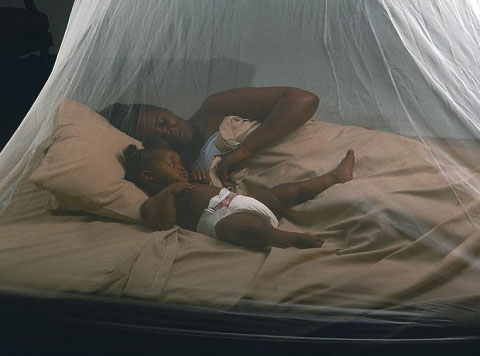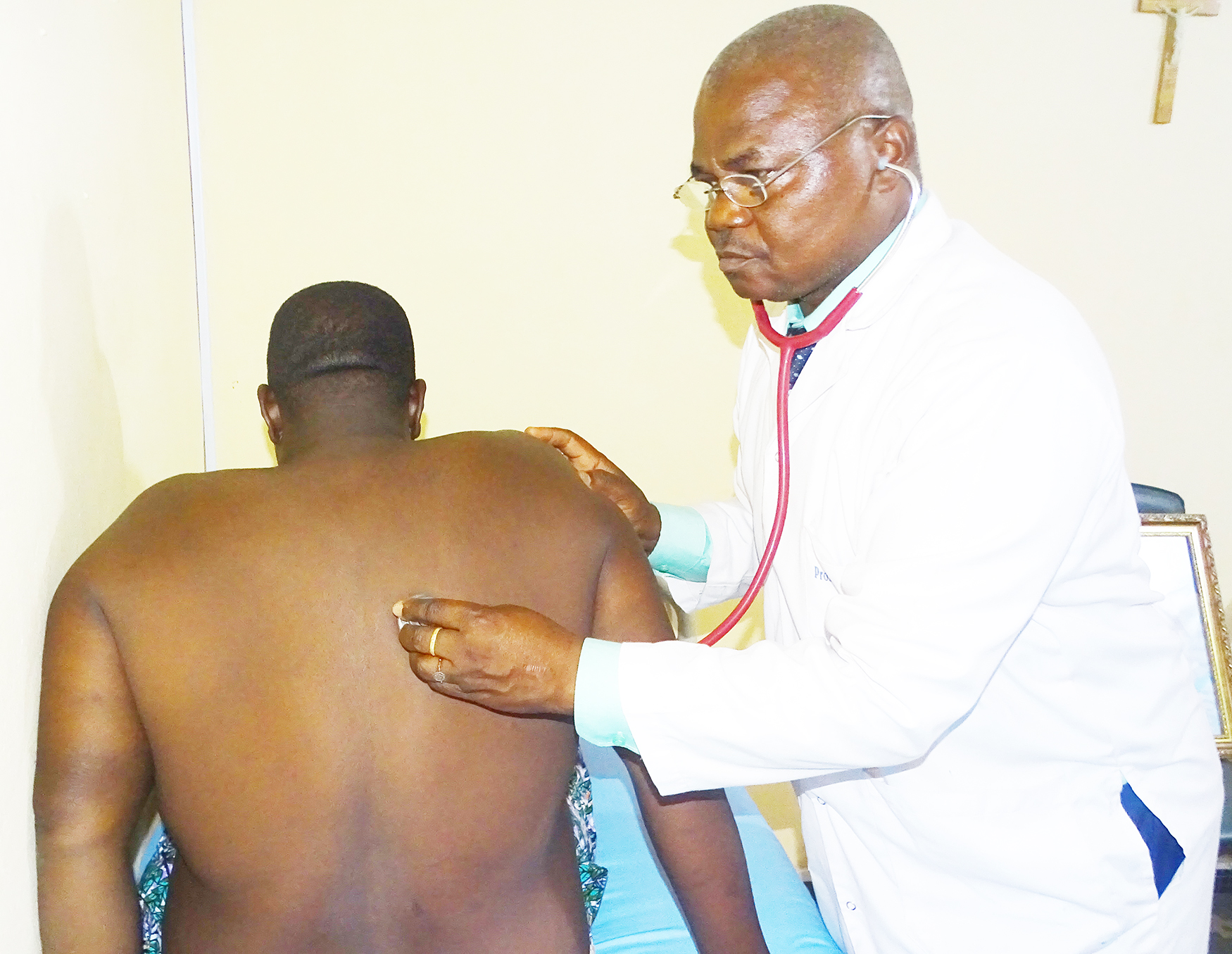Lutte contre la dengue : Interview du Dr Malanna Fortuné Bigma, Chargé de recherches au CARESP-Togo
- Posted on 02/07/2024 14:30
- Film
- By abelozih@sante-education.tg

Extract from the article: La dengue, une maladie virale dont le traitement est symptomatique. Souvent confondue au paludisme bien que le patient peut souffrir des deux maladies à la fois, la dengue est mortelle, et le Burkina est dans une période cruciale de la maladie. Dr Ma
« Caution: when you have a fever associated with headaches and retro-orbital pain, go for a consultation quickly, it could be dengue ».
Dengue fever is a viral disease that
can only be treated symptomatically. Often confused with malaria, although the
patient can suffer from both diseases at the same time, dengue is fatal, and some countries like Burkina are in a crucial period of the disease. In this interview, Dr Malanna
Fortuné Bigma, D.E.S in Public Health and Research Manager at the African
Center for Research in Epidemiology and Public Health (CARESP-Togo), gives
advice on how to prevent the disease.
Santé-Education: What is dengue fever?
Dr Malanna Fortuné Bigma: Dengue fever is an
infectious disease caused by a virus transmitted to humans by mosquitoes, which
usually bite during the day. It is therefore a vector-borne disease.
What causes this disease?
Dengue fever is caused by a virus comprising
4 serotypes: DENV-1, DENV-2, DENV-3 and DENV-4, all of which are independent.
But DENV-1, DENV-2 and DENV-3 are the three serotypes of the dengue virus
circulating in Togo. This means you can get dengue at least 4 times.
Are there several types of dengue?
We prefer to talk in terms of clinical
forms. After infestation, there are several clinical presentations: There are
asymptomatic forms (with no signs), where dengue is discovered by chance after
a serological test.Pauci-symptomatic forms (with few signs) characterized by an
isolated fever of short duration, with or without headache or joint/muscle
pain. Symptomatic forms are generally infrequent. But the most frequent forms
are asymptomatic and pauci-symptomatic in around 50-90% of cases.
Is there a particular period when this
disease is most prevalent?Yes, particularly during the rainy season, with a
peak in the number of cases in October and November. But the fact remains that
the disease can be contracted at any time of the year.
Some people confuse malaria with dengue
fever. What is the difference?
The first thing to do is to go to a health
center for a consultation as soon as you feel unwell. Depending on the signs you present, the
health worker will do what is necessary to diagnose what you have.But be careful,
you can have both diseases at the same time.Malaria is a parasitic disease, and
there is an effective cure.Dengue fever, on the other hand, is a viral disease
and its treatment is symptomatic.
What are the symptoms of dengue fever?After
infection, the disease evolves in 3 phases: first, a febrile phase: fever
(39-40°C) with generalized pain (headache, retro-orbital pain, joint muscle
pain), rash, mild hemorrhagic signs, nausea and vomiting. This is followed by what is known as the
critical phase, from day 4-5, when a drop in fever is observed. In the majority
of cases, patients will recover and progress towards convalescence; but others
will progress towards severe forms with organ damage (renal, hepatic,
neurological, pulmonary, haemorrhagic...), most often fatal.
Finally, the convalescence phase: during
this phase, the general condition improves, appetite returns, vital signs
normalize and generalized itching appears.
How
can this disease be treated?
There is no cure, but there is symptomatic
treatment. Symptomatic treatment is enough to save the patient, which is why
early consultation is essential to detect and prevent complications.
How long does treatment for dengue
fever last?
This will depend on the duration of
symptoms; on average 4 to 5 days if the patient is seen at the start of the
illness.However, it's the convalescence period that is long and characterized
by fatigue.
Is it fatal? It is usually benign, if
treated early and appropriately. For unknown reasons, however, some people
develop serious, life-threatening complications.
In some children, for reasons that remain
unclear, the clinical picture of dengue fever can evolve into two serious
forms: dengue hemorrhagic fever, and dengue fever with shock syndromes, which
is fatal. The haemorrhagic form of the disease, which accounts for around 1% of
dengue cases worldwide, is extremely severe: fever persists and multiple
haemorrhages, notably gastrointestinal, cutaneous and cerebral, often occur. In
children under 15, however, hypovolemic shock can set in (chills, clammy skin
and an imperceptible pulse signalling circular failure), leading to abdominal
pain and, without perfusion, death.
What is the epidemiological situation
of the disease in Togo?
In
Togo, the Ministry of Health has announced health investigations following
several cases of dengue fever.These cases have been reported in a scattered
manner, with five cases in the maritime region in the south, one in the
Plateaux region, and two in the Savanes region in the far north. Investigations
are underway to identify any cases in the community, with a view to early
treatment.
How
to prevent dengue fever?
Prevention
involves cleaning up the living and working environment.Individual prevention
involves avoiding the bites of the mosquito that carries dengue fever:using
repellent creams/sprays every 4 hours and wearing long clothing, installing
anti-mosquito screens on doors and windows and using anti-mosquito twists
during the day (living rooms and verandas), sleeping under a mosquito net
impregnated with long-acting insecticide, killing adult mosquitoes by spraying
bedrooms, under beds and in wardrobes with insecticides.
Mosquito larvae control with the help of the
community; this is vector control, which consists of limiting the mosquito
population by eliminating mosquito breeding grounds such as containers of all
kinds exposed to rain and sun (cans, bottles, tires, pots...), as they
constitute warm, stagnant water reserves conducive to the development of
mosquito larvae. Pour out flowerpot saucers, cover drinking-water storage
containers, cover garbage cans and keep rubbish dumps away from people.We also
need to sanitize the home and peri-domestic environment, adopt intra- and
extra-domestic spraying and isolate patients in the viremic phase under
mosquito nets and/or with the use of repellent cream (to prevent mosquitoes
from becoming infected).
Avoid
self-medication and anti-inflammatory drugs, and go to a health center as soon
as the first signs appear. Don't forget to inform and communicate with those
around you.
Interview by Abel OZIH




